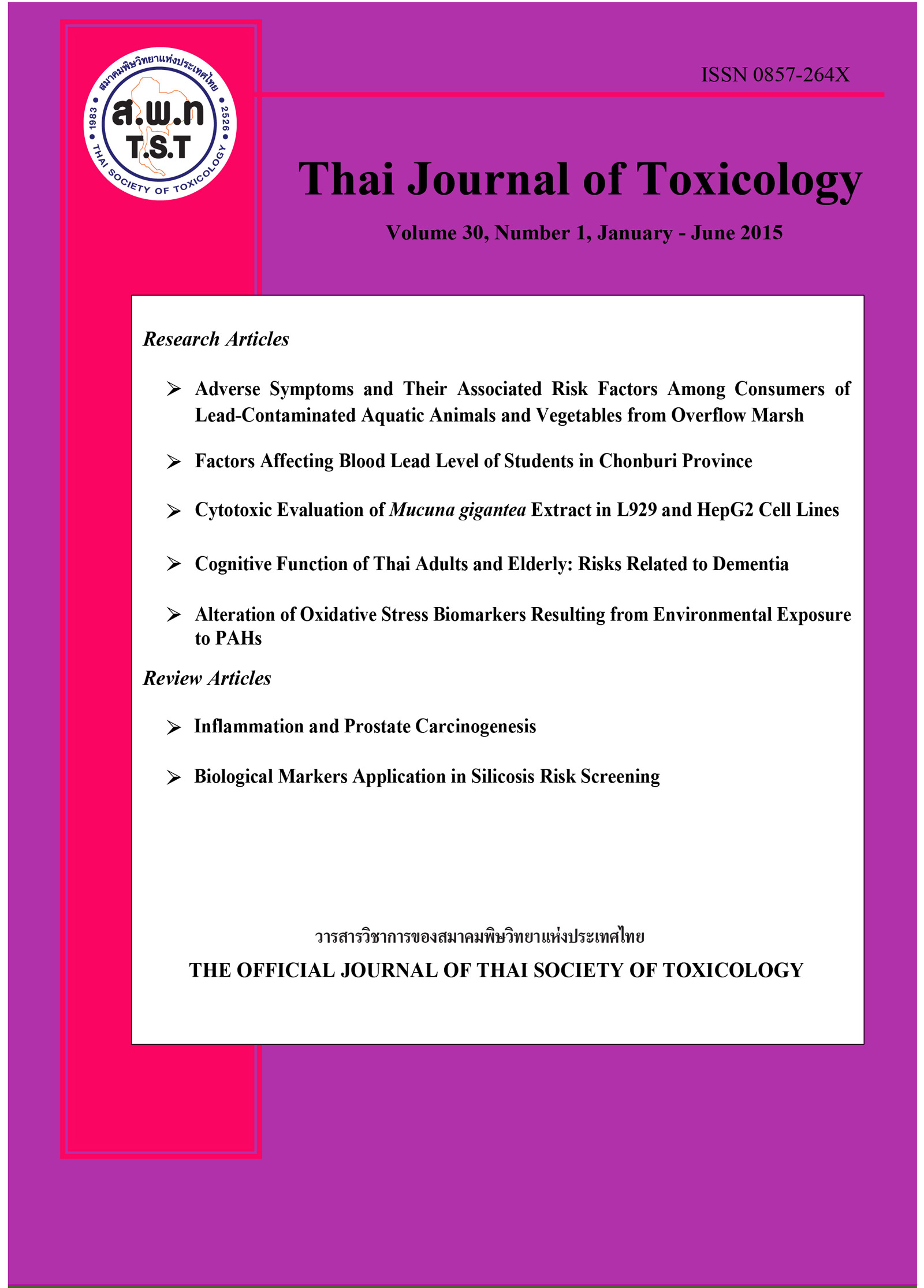Factors Affecting Blood Lead Level of Students in Chonburi Province
Main Article Content
Abstract
Lead is a highly toxic heavy metal which causes intellectual abnormalities in children. This study is a survey research using cross-sectional method to evaluate the effects of heavy metal exposure and the possible factors in students between June and July, 2010. Heavy metals were monitored using both environmental and biological indicators. Ninety students in 4th and 6th grade from three schools located in industrial area of Chonburi province were inquired and interviewed. The average value of lead in blood was 6.35 ± 3.84 μg/dl and was not significantly different. Drinking and supplied water from studied area were collected and analyzed. Eight heavy metals including Al, Fe, As, Mn, Zn, Cd, Cu and Hg were found in all samples (n = 15), but Cr, Ni and Pb were not found. Factors that correlated with lead levels in the blood with statistically significant difference were the time that the students take from home to school (p = 0.029) and the refinery plant that is located near residential areas (p = 0.040). In conclusion, there was no correlation between lead levels in the blood and its exposure. Lead exposure from other sources should be further studied and health-monitoring procedure should be established for other heavy metals found in drinking water.


